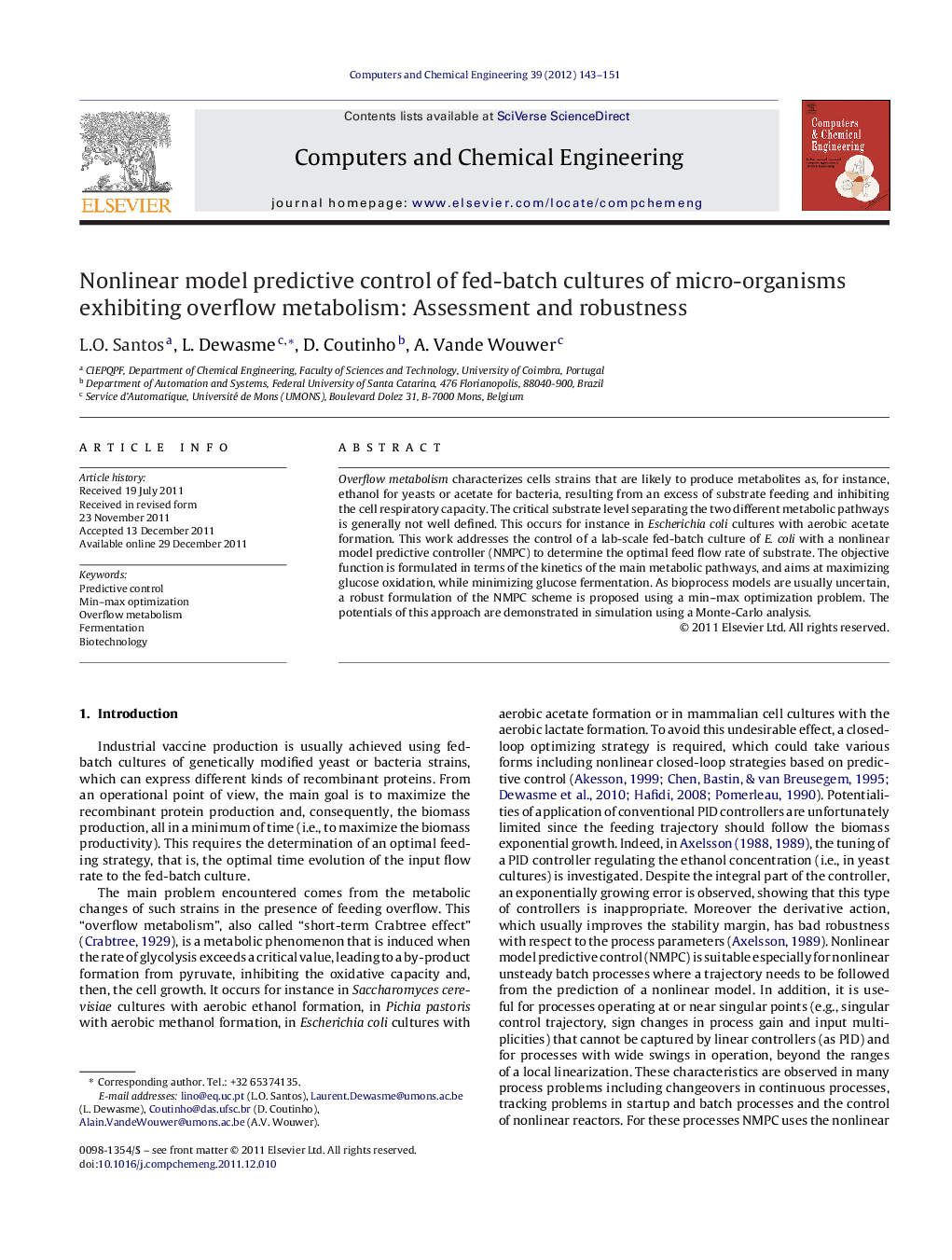| Article ID | Journal | Published Year | Pages | File Type |
|---|---|---|---|---|
| 172886 | Computers & Chemical Engineering | 2012 | 9 Pages |
Overflow metabolism characterizes cells strains that are likely to produce metabolites as, for instance, ethanol for yeasts or acetate for bacteria, resulting from an excess of substrate feeding and inhibiting the cell respiratory capacity. The critical substrate level separating the two different metabolic pathways is generally not well defined. This occurs for instance in Escherichia coli cultures with aerobic acetate formation. This work addresses the control of a lab-scale fed-batch culture of E. coli with a nonlinear model predictive controller (NMPC) to determine the optimal feed flow rate of substrate. The objective function is formulated in terms of the kinetics of the main metabolic pathways, and aims at maximizing glucose oxidation, while minimizing glucose fermentation. As bioprocess models are usually uncertain, a robust formulation of the NMPC scheme is proposed using a min–max optimization problem. The potentials of this approach are demonstrated in simulation using a Monte-Carlo analysis.
► Application of nonlinear model predictive control (NMPC) to the overflow metabolism (bottleneck) model. ► Use of an original cost function using kinetics (glucose oxidation and fermentation). ► Use of 3 simple measurements to reconstruct the objective cost function. ► Robustness to model uncertainties is investigated through a min–max optimization problem.
